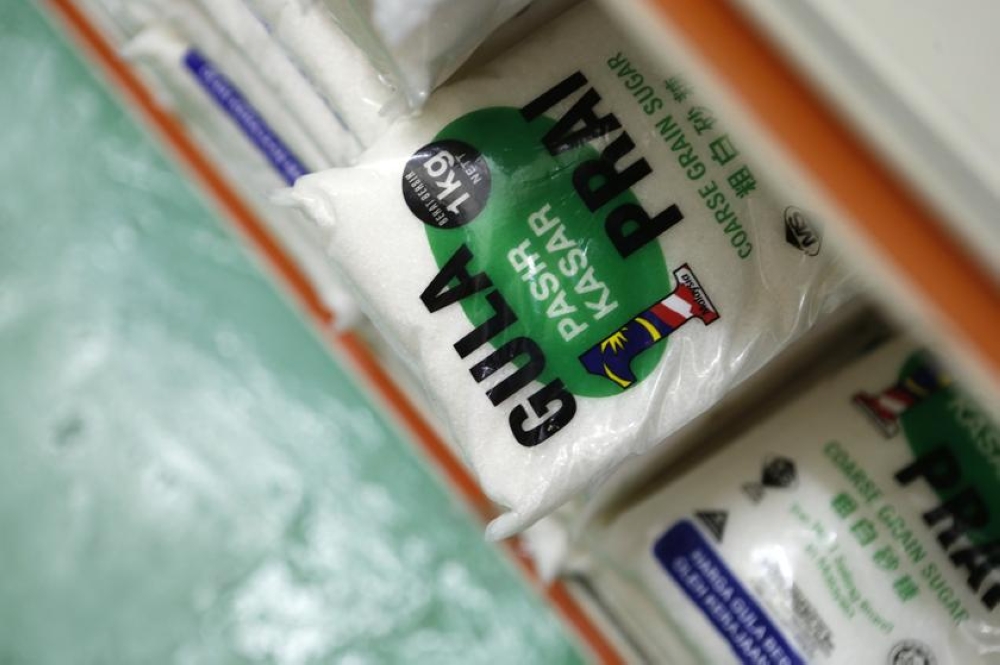KUALA LUMPUR, July 9 — Food prices are projected to increase further in the third quarter of 2023 due to Malaysia’s reliance on imports for ingredients and the weak ringgit against the US dollar, several industry players have predicted.
Kuala Lumpur and Selangor Indian Chamber of Commerce and Industry president Nivas Ragavan said its members have been experiencing a 20 per cent increase in production and operation costs since January, Mingguan Malaysia reported today.
“The effect is prices for products at the consumer level will also increase and I predict that in this third quarter, consumer goods’ prices will increase at least by 20 per cent. If before this there is a product sold at RM10, it will increase to RM12 to RM12.50 at least,” he was quoted as saying by the Sunday edition of Malay daily Utusan Malaysia.
Nivas said the whole supply chain has seen increases in costs and that this will increase prices for consumers who will face the effect of imported inflation.
Imported inflation refers to inflation due to the rise in imports’ prices, with increased prices for imported materials and components for example potentially resulting in higher local production costs.
Nivas predicted price increases for consumers at 20 per cent starting from the third quarter this year with higher import prices.
Datuk Ameer Ali Mydin, the managing director of local hypermarket and retail chain Mydin, also predicted that prices for consumer goods could go up between 5 and 10 per cent starting next month or September, as imported products would usually take time to reach the country.
He told the Malay newspaper that such price increases for consumers are not only due to the ringgit’s weakness when compared to the dollar and imported inflation, but also because business operations are getting more expensive.
“This includes the minimum wage hike, the increase in utility bills, and others. When the cost of running a business goes up, certainly it will increase the cost of production and ultimately the cost of goods to the consumer,” he was quoted as saying.
Malaysians with a sweet tooth could possibly be the first to be affected.
The Sunday Star today reported several industry players saying that the commercial packs of 50kg sugar could increase by some 20 per cent or more soon, which could jack up the prices of confectionaries and baked goods.
The newspaper cited Chaang Tuck Cheong, the president of the Malaysian Bakery, Biscuit, Confectionery, Mee and Kuay Teow Merchants Association, saying that a 20 per cent increase would mean that the selling price for a 50kg sugar pack could go up from the current RM160 to nearly RM200.
Chaang told the English-language newspaper that production cost increases could be minimised if the level of sugar used in pastries, confectionaries and other such sweet goods are kept modest.
YT Frozen Food (M) Sdn Bhd director Edmund Teoh told The Sunday Star that the next price increase for a 50kg sugar pack — which is not a government-controlled item — could exceed 20 per cent.
According to Teoh, suppliers have only verbally spoken of plans for the sugar price hike and that final pricing details will be provided later.
The Sunday Star also reported Deputy Domestic Trade and Cost of Living Minister Senator Fuziah Salleh saying that any increase in sugar prices will not affect the government-controlled retail prices for coarse sugar and refined white sugar, dubbed “gula rakyat” as it is used by the public.
This is because wholesale 50kg sugar packs are not government-controlled price items.

“The prices of the coarse and gula rakyat are however government-controlled and will remain at the ceiling price of RM2.85 per kg and RM2.95 per kg respectively,” Fuziah was quoted as saying, adding that retail sugar in Malaysia is among the lowest priced in South-east Asia.
Fuziah was also reported saying that MSM Malaysia Holdings Bhd and Central Sugar Refinery Sdn Bhd will continue to produce sugar at 24,000 tonnes and 18,000 tonnes per month according to the government-set quota.
She said the two sugar producers are required to report their production levels daily to enable the ministry to keep track of whether the quota has been reached.
“With every kilogramme of sugar they produce, they are doing so at a loss, but the government is still maintaining the ceiling price due to the current high cost of living situation,” she was quoted as saying.
Fuziah said the government has allowed sugar refiners to sell a new product called pure white refined sugar at market prices which is targeted at customers who can pay premium prices, to enable them to cross-subsidise the losses from producing and selling gula rakyat at a low maximum price. MSM began selling this in May.
MSM group chief executive officer Syed Feizal Syed Mohammad said the increase in the prices of sugar which are not controlled by the government is inevitable, and that the increased price would reflect and be closer to the market price for sugar.
“Price rationalisation is something that is inevitable in all products due to the higher input costs, including forex and sugar, and there is no exception to this,” he was quoted as saying.
He said it was not just sugar, but other goods that will also continue to see their prices rationalised.
MSM and Syed Feizal reportedly cited factors such as the global shortage of sugar supply, low production, poor weather, shortage of land to cultivate sugar cane while corn and cassava have more attractive yields, and the ringgit trading lower against the US dollar in the past year.



















